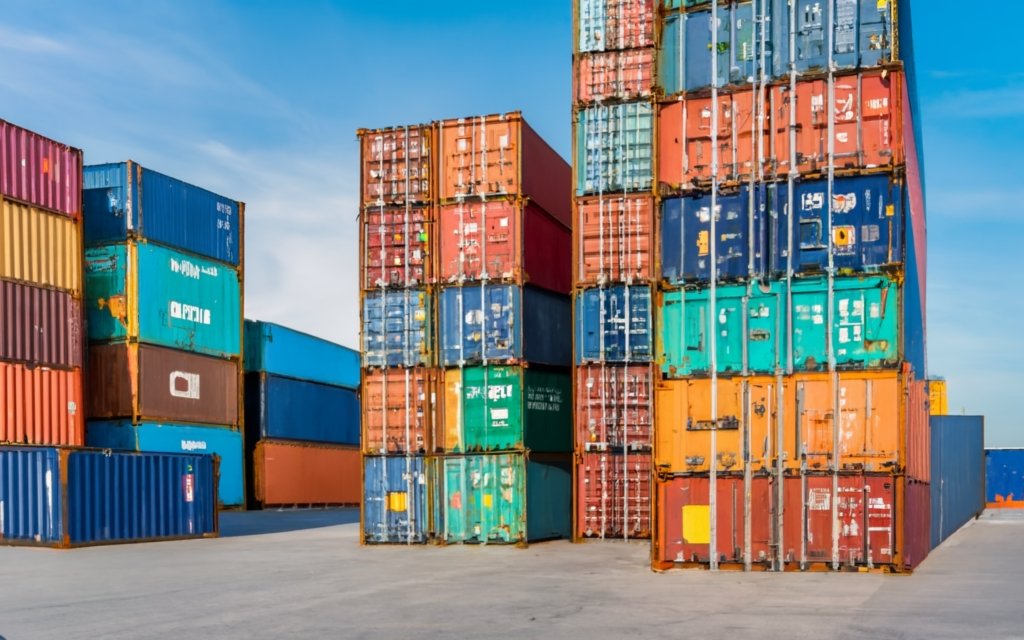China and Germany are two of the world’s largest economies and trading partners. According to the latest statistics, China is Germany’s biggest source of imports and its third-largest export market. The bilateral trade volume between the two countries reached €212.6 billion in 2020, despite the impact of the COVID-19 pandemic.
One of the main modes of transportation for goods between China and Germany is air cargo. Air cargo offers many advantages over other modes of transportation, such as sea, rail, or road. In this article, we will explore the benefits of air cargo transportation from China to Germany, the different types of air cargo options available, and some tips for choosing the best air cargo service for your needs.
Advantages of Air Cargo Transportation from China to Germany

Air cargo transportation has several benefits that make it a preferred choice for many businesses and individuals who need to ship goods from China to Germany. Some of the main advantages are:
- Speed: Air cargo is the fastest way to transport goods from one country to another. Depending on the destination, air cargo can take as little as one day to deliver goods from China to Germany. This is especially useful for time-sensitive or perishable goods, such as fresh food, flowers, medicines, or electronics.
- Reliability: Air cargo is less affected by external factors, such as weather, traffic, or customs delays, than other modes of transportation. Air cargo services usually have fixed schedules and routes, which reduce the risk of unexpected disruptions or cancellations. Air cargo also has a lower rate of damage or loss of goods, as they are handled with more care and security than other modes of transportation.
- Flexibility: Air cargo can accommodate a wide range of goods, from small parcels to large pallets, and from low-value to high-value items. Air cargo can also ship goods to almost any destination in the world, as long as there is an airport nearby. Air cargo services can also offer customized solutions, such as express delivery, door-to-door delivery, or special handling, to meet the specific needs of different customers.
Different Types of Air Cargo Options Available

There are various types of air cargo options available for shipping goods from China to Germany, depending on the size, weight, value, and urgency of the goods. Some of the most common types are:
- General Cargo: This is the most basic and common type of air cargo, which includes goods that do not require any special handling or conditions, such as clothing, books, toys, or furniture. General cargo can be shipped in standard containers or pallets, and is usually charged by weight or volume, whichever is higher.
- Special Cargo: This is the type of air cargo that includes goods that require special handling or conditions, such as temperature, humidity, pressure, or security. Special cargo can be divided into several categories, such as dangerous goods, live animals, perishable goods, valuable goods, or oversized goods. Special cargo usually requires additional documentation, packaging, labeling, and fees.
- Courier Cargo: This is the type of air cargo that includes small parcels or documents that need to be delivered quickly and securely. Courier cargo is usually shipped by express air freight services, such as DHL, FedEx, or UPS, which offer fast and reliable delivery, tracking, and insurance. Courier cargo is usually charged by weight, and the price depends on the destination, service level, and delivery time.
Comparison of Air Cargo Options – Speed, Cost, and Reliability
The choice of air cargo option depends on the trade-off between speed, cost, and reliability. Generally speaking, the faster and more reliable the air cargo option, the more expensive it is. The table below summarizes the main differences between the three types of air cargo options discussed above:
| Type | Speed | Cost | Reliability |
|---|---|---|---|
| General Cargo | Medium | Low | Medium |
| Special Cargo | Medium | High | High |
| Courier Cargo | High | High | High |
Factors to Consider When Choosing an Air Cargo Service

When choosing an air cargo service for shipping goods from China to Germany, there are several factors to consider, such as:
- The nature of the goods: The type, size, weight, value, and urgency of the goods will determine the most suitable air cargo option and service provider. For example, if the goods are perishable, valuable, or time-sensitive, it may be better to choose a special cargo or a courier cargo option, and a reputable and reliable air freight carrier. If the goods are bulky, heavy, or low-value, it may be more economical to choose a general cargo option, and a cheaper and slower air freight carrier.
- The destination of the goods: The location, accessibility, and availability of the destination airport will affect the air cargo option and service provider. For example, if the destination airport is in a remote or rural area, it may be more difficult or expensive to find an air freight carrier that can deliver the goods there. If the destination airport is in a busy or congested area, it may be more prone to delays or disruptions. It may be wise to check the flight schedules, routes, and frequencies of different air freight carriers before choosing one.
- The budget and time frame of the customer: The amount of money and time that the customer is willing to spend on the air cargo service will influence the air cargo option and service provider. For example, if the customer has a tight budget or a long time frame, it may be more feasible to choose a general cargo option, and a cheaper and slower air freight carrier. If the customer has a generous budget or a short time frame, it may be more desirable to choose a special cargo or a courier cargo option, and a more expensive and faster air freight carrier.
Air Cargo Regulations and Customs Procedures
Shipping goods by air cargo from China to Germany involves complying with various regulations and customs procedures, both in the origin and destination countries. Some of the main aspects to consider are:
- Documentation: The air cargo service provider will usually provide the necessary documents for the air cargo shipment, such as the air waybill, the commercial invoice, the packing list, and the certificate of origin. The customer will need to fill out and sign these documents accurately and completely and provide any additional documents that may be required by the customs authorities, such as the import license, the export license, or the certificate of conformity.
- Packaging: The customer will need to ensure that the goods are properly packaged and labeled for air cargo transportation, according to the standards and regulations of the International Air Transport Association (IATA). The packaging should be sturdy, secure, and suitable for the type and nature of the goods. The labeling should include the name and address of the sender and the receiver, the description and quantity of the goods, the weight and dimensions of the package, and any special markings or symbols that may apply, such as fragile, handle with care, or this side up.
- Taxes and duties: The customer will need to pay the applicable taxes and duties for the air cargo shipment, both in the origin and destination countries. The taxes and duties may vary depending on the type, value, and origin of the goods, and the trade agreements and policies of the countries involved. The customer can use online tools, such as the World Customs Organization’s Harmonized System (HS) code, or the European Union’s TARIC code, to estimate the taxes and duties for the air cargo shipment . The customer can also use online tools, such as the World Bank’s Logistics Performance Index (LPI), or the World Economic Forum’s Enabling Trade Index (ETI), to compare the ease and efficiency of customs clearance and trade facilitation in different countries .
Tips for Efficient and Cost-Effective Air Cargo Shipping

Shipping goods by air cargo from China to Germany can be a complex and costly process, but there are some tips that can help the customer to make it more efficient and cost-effective, such as:
- Plan ahead: The customer should plan the air cargo shipment well in advance, and avoid peak seasons, such as holidays, festivals, or events, when the demand and prices for air cargo services may be higher. The customer should also book the air cargo service as early as possible, and confirm the availability and capacity of the air freight carrier and the destination airport.
- Compare options: The customer should compare different air cargo options and service providers, and choose the one that best suits their needs and budget. The customer should consider the speed, cost, and reliability of the air cargo service, as well as the reputation and experience of the air freight carrier. The customer should also check the reviews and feedback of other customers who have used the same air cargo service or air freight carrier before.
- Negotiate rates: The customer should negotiate the rates and fees for the air cargo service with the air freight carrier or the air cargo agent, and try to get the best deal possible. The customer should also ask for discounts or incentives, such as volume discounts, loyalty discounts, or referral discounts, that may apply to their air cargo shipment.
- Track and insure: The customer should track and insure their air cargo shipment, and monitor its status and progress throughout the transportation process. The customer should use the tracking number or the air waybill number provided by the air cargo service provider, and access the online tracking system or the mobile app of the air freight carrier or the air cargo agent. The customer should also insure their air cargo shipment, and purchase the appropriate coverage and policy from the air cargo service provider or a third-party insurance company.
Air Cargo Tracking and Insurance

Tracking and ensuring the air cargo shipment are important steps to ensure the goods, and to protect the customer from any potential risks or losses. The customer should use the following methods to track and insure their air cargo shipment:
- Tracking: The customer should use the tracking number or the air waybill number provided by the air cargo service provider, and access the online tracking system or the mobile app of the air freight carrier or the air cargo agent. The tracking system will show the real-time status and location of the air cargo shipment, and notify the customer of any updates or changes. The customer can also contact the air cargo service provider or the air freight carrier directly, and request for more information or assistance regarding the air cargo shipment.
- Insurance: The customer should insure their air cargo shipment, and purchase the appropriate coverage and policy from the air cargo service provider or a third-party insurance company. The insurance will cover the customer for any damages or losses that may occur to the goods during the air cargo transportation, such as theft, fire, accident, or natural disaster. The insurance will also compensate the customer for any delays or disruptions that may affect the delivery of the goods, such as flight cancellation, rerouting, or customs clearance. The customer should read the terms and conditions of the insurance carefully, and understand the scope, limits, and exclusions of the coverage.
Popular Air Cargo Routes from China to Germany

China and Germany have many air cargo routes that connect the major airports and cities of both countries. Some of the most popular air cargo routes from China to Germany are:
- Beijing (PEK) to Frankfurt (FRA): This is one of the busiest and most frequent air cargo routes from China to Germany, with an average of 10 flights per day. The flight time is about 10 hours, and the distance is about 7,500 km. The main air freight carriers that operate on this route are Air China, Lufthansa, China Southern, and China Eastern.
- Shanghai (PVG) to Munich (MUC): This is another popular and regular air cargo route from China to Germany, with an average of 7 flights per day. The flight time is about 11 hours, and the distance is about 8,500 km. The main air freight carriers that operate on this route are Lufthansa, China Eastern, Air China, and China Cargo Airlines.
- Guangzhou (CAN) to Cologne (CGN): This is a relatively new and fast-growing air cargo route from China to Germany, with an average of 5 flights per week. The flight time is about 12 hours, and the distance is about 9,000 km. The main air freight carrier that operates on this route is UPS, which has a dedicated cargo hub at Cologne airport.




